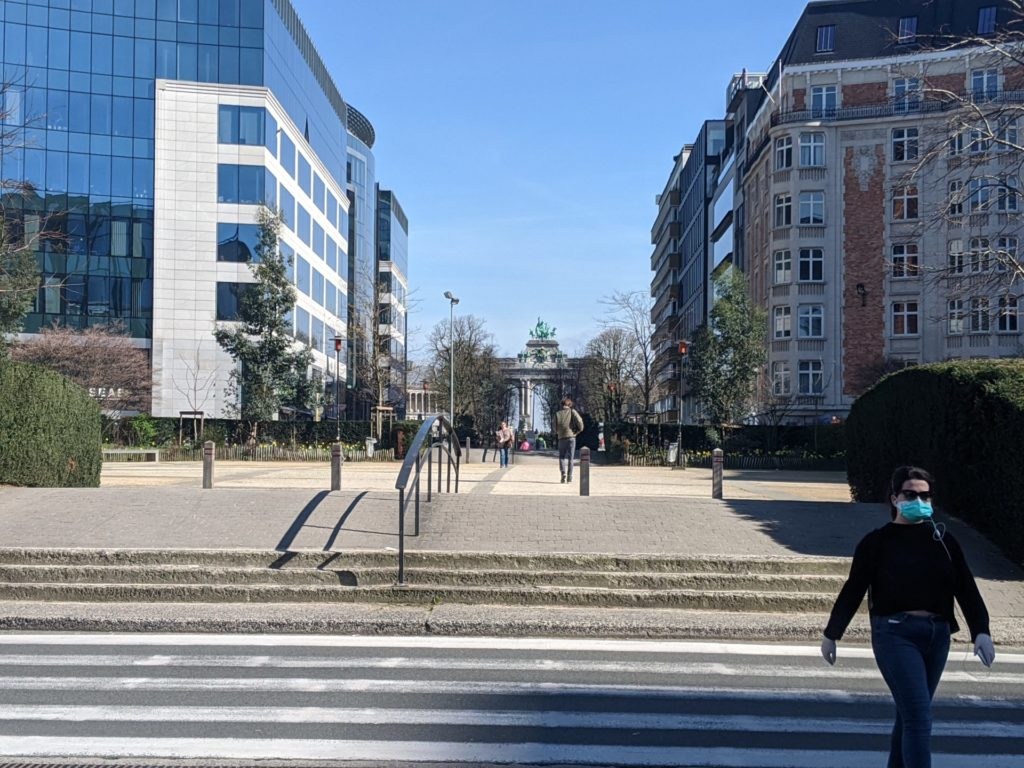A new study published on Thursday estimates that at least 470,000 lives have been saved among those aged 60 years and over since the start of COVID-19 vaccination roll-out in 33 countries across the WHO European Region.
The joint study by the WHO Regional Office for Europe and the European Centre for Disease Prevention and Control (ECDC) was published in Eurosurveillance, a European peer-reviewed scientific journal devoted to the epidemiology, surveillance, prevention and control of communicable diseases.
“COVID-19 has exacted a devastating death toll in our region, but we can now categorically say that without COVID-19 vaccines as a tool to contain this pandemic, many more people would have died,” commented Dr Hans Henri P. Kluge, WHO Regional Director for Europe (25 November).
“The COVID-19 vaccines are a marvel of modern science and what this research shows is that they’re doing what they promised, that is saving lives, offering very high protection against severe illness and death. In some countries, the death toll would have been double what it is now without the vaccines.”
The 33 countries analysed are: Iceland, Israel Norway, Malta, Spain, Finland, Ireland, England, Cyprus, Portugal, Greece, France, Austria, Belgium, Italy, Luxembourg, Sweden, Hungary, Lithuania, Switzerland, Estonia, North Macedonia, Montenegro, Slovenia, Poland, Czechia, Croatia, Latvia, Romania, Slovakia, Moldova, Ukraine and Scotland.
Comparison of mortality
The authors from WHO/Europe and ECDC estimated the number of deaths among adults aged 60 years and older in the 33 countries in the European Region that would have happened without any vaccines using the actual weekly reported death counts.
They then calculated the number of lives saved from COVID-19 vaccination as the difference between these estimates and the reported number of deaths from December 2020 to November 2021 for those aged 60 years and over.
They estimated that COVID-19 vaccination saved 469,000 lives in this age group in the 33 countries during the study period – reducing the expected number of deaths by approximately half. In 30 countries with data also available in smaller age groups, the largest number of lives saved was among those aged 80 years and over (261,000 lives).
The estimate does not include lives saved by vaccinating people less than 60 years nor lives saved from the indirect effect of vaccination because of a reduction in transmission.
Variation by country
While the average percentage of save lives was 51 %, the figure varied widely by country, even among those with high vaccination rates. At the top were Iceland (93 % saved lives), United Kingdom (86 %) and Israel (80 %). For Belgium the figure was exactly 50 %, followed among others by Sweden (42 %), Italy (37 %), and Hungary (33 %).
At the bottom among EU member states were Romania (20 %), Poland (19 %), Croatia (16 %) and Slovakia (14 %).
High vaccination rates alone are not enough. The study explains that the largest number of lives saved was in countries where COVID-19 vaccination rollout was early and uptake in the target group was also high.
Other countries experienced limited effects of vaccination because their vaccine roll-out was either slower or not rolled out in parallel with the on-going use of non-pharmaceutical interventions to reduce transmission.
“The consequences of low vaccination rates in some countries are currently being reflected in overloaded health care systems and high mortality rates,” explained Dr Andrea Ammon, ECDC Director. “We urge member states to continue focusing on closing immunization gaps, especially among the most vulnerable individuals and those at highest risk of severe disease.”
Lessons learned
Vaccination is essential together with other preventive measures, according to WHO/Europe and ECDC. It is one part of the toolbox of important measures needed to curb the pandemic, but on its own it will not end the health crisis.
“First of all – get vaccinated. Vaccination is saving lives in all age groups,” says Dr Kluge. “We know the virus thrives in closed, crowded and confined spaces, and that’s why we must also follow measures known to reduce transmission, especially now the colder weather is driving us to gather indoors.”
“Wear a mask in crowded, closed and confined spaces, cover coughs and sneezes, keep physical distance from other people and wash your hands regularly. Ventilation is important too, so if it’s safe to do so open a window or a door to let in fresh air.
It’s important that authorities take these measures and that we do all of these for the protection of ourselves and others, even if we are fully vaccinated, because based on the available evidence vaccination greatly reduces but cannot stop virus transmission altogether.”
“By making these actions part of our daily routine, we can all help stop infection and the spread of the virus. In the same way that we routinely put on a seatbelt when driving, we should think to wash our hands, wear a mask or keep distance from other people, to protect from infection.”
Until the pandemic is over, countries must also keep in place strong public health measures such as free of charge testing, contact tracing to break chains of transmission as well as urgently reach out to all individuals in priority groups for vaccination who have not already received a full series.
The Brussels Times

